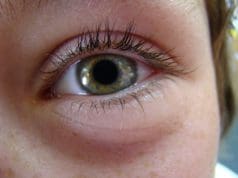
When men spot unfamiliar changes on the skin in intimate areas, panic rarely arrives alone. Shame, that old companion, is quick to follow, whispering all sorts of nonsense. Something must be wrong with them alone, as if they drew a short straw. The truth? Genital skin conditions are common, though hardly anyone discusses them over dinner. Suffering in silence becomes the norm. Without information or support, minor problems can spiral into serious ones. Early action changes everything. Treatment exists, and embarrassment serves no one. What stands between discomfort and relief? We equip our knowledge with practical steps. Here’s what needs to be said and done about male genital skin issues.
Understanding Common Concerns
A rash or white patch causes immediate alarm; questions arise before answers are provided. The term lichen sclerosus of the penis can be difficult to understand at first. Dryness, itching, and tightness around the penis head and foreskin are symptoms. Sometimes urinating or sex hurts. This is neither a symptom of poor hygiene nor a rarity. Many men experience similar troubles but do not discuss them. Fungal infections and eczema can sometimes appear embarrassing when they are medical issues.
Breaking Down Barriers
Genital health suffers more from stigma than most other topics. Men grow up hearing jokes or warnings but little real information about what constitutes normal versus problematic behaviour in this area. Many people delay seeking help for months or even years, hoping that their symptoms will disappear through magic or sheer denial. Meanwhile, stress mounts up and self-confidence erodes invisibly in daily life or relationships alike (what a needless toll). The answer is not silence but conversation: opening up to healthcare professionals clears confusion fast while kicking shame into touch.
Getting Diagnosed Quickly
Speed matters here. Waiting has no effect other than causing anxiety to skyrocket without any apparent reason. Doctors have seen every possible variation before and don’t blink twice at another man worried about his skin down there. GPs or sexual health clinics can run simple physical checks while ruling out infections easily (no need for drawn-out procedures). Occasionally, if things appear unclear after the initial examination, a dermatologist may receive a referral for further evaluation. In such cases, a small biopsy may be performed, but only when necessary, not as a standard protocol for most cases.
Modern Treatments That Work
So what shifts after diagnosis? Relief comes not just from an end to uncertainty, but also from highly effective treatments developed specifically for these situations today, rather than vague home remedies found on internet forums late at night. When used appropriately under a physician’s supervision, topical steroid creams can help alleviate inflammatory disorders in as little as a few weeks. Antifungals treat yeast infections swiftly, while moisture-locking emollients for sensitive skin work effectively for eczema. Recurrences are prevented by ongoing care. Right planning always beats persistent symptoms.
Conclusion
Shame impedes progress more than any diagnosis could; secrecy prevents men from accessing solutions that are readily available in clinics across Britain today. Honest discussions with trusted doctors about Genital Skin Conditions offer prompt answers, plus reassurance that almost every problem has an effective remedy waiting, which means restored confidence soon follows renewed health by default. Time wasted worrying stings far longer than anything prescribed in modern medicine now does; taking bold action marks both the hardest step and ultimately the wisest move any person can make for themselves and those who care about them.



